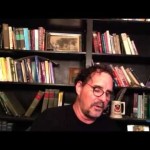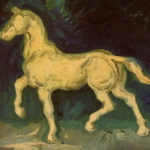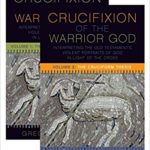We run our website the way we wished the whole internet worked: we provide high quality original content with no ads. We are funded solely by your direct support. Please consider supporting this project.

Does the Lord “Devastate” the Earth?
There is this passage that has sometimes been labeled “Isaiah’s Little Apocalypse” that proclaims how the Lord will “lay waste,” “destroy,” and “ruin” the earth. (The following builds on this previous post which identifies a dual speech pattern of God). It begins with:
The LORD is going to lay waste the earth
and devastate it;
he will ruin its face and scatter its inhabitants (24:1).
Isaiah goes on to decry that “the earth will be completely laid waste and totally plundered” (Isa 24:3) because it has been “defiled by its people” who “have disobeyed the laws” and “broken the everlasting covenant” (vs. 5). Isaiah declares that “a curse consumes the earth” and “its people must bear their guilt” (vs. 6). When free moral agents fall, all that is under their authority falls with them.
Thus far a reader would be justified in assuming that the Lord himself was going to bring about the massive destruction Isaiah speaks of. We get a very different impression, however, if we continue reading, for we soon discover how the Lord planned on bringing about this curse. Relying on the typical ANE conception of anti-creational forces as hostile waters, and using language that is reminiscent of the reversal-of-creation flood account in Genesis, Isaiah proleptically declares:
The floodgates of the heavens are opened,
the foundations of the earth shake.
The earth is broken up,
the earth is split asunder,
the earth is violently shaken (Isa 24:18-9).
These passages indicate that way Yahweh curses the earth is simply by removing the protection (the “floodgates”) that had previously kept hostile cosmic forces at bay. And it is important to notice that, while Yahweh allows these forces to carry out their malevolent designs as a consequence of people’s rebellion, there is no suggestion in this or any other passage that God wanted these forces to be the way they are or that God causes these forces to engage in this destructive activity. To the contrary, Isaiah immediately adds that, once this judgment is complete, Yahweh will “punish the powers in the heavens” and will once again “shut them up” in a “dungeon” and a “prison” (vs. 22).
Just as we have seen God does with violent kings and wicked nations, the sovereign God makes wise use of evil agents as he finds them. But we must never misinterpret God’s willingness to use wicked cosmic forces, wicked nations, and violent kings as indicating his approval of their violence. For as God does in this passage, and as we have seen him do throughout Scripture, once God is done allowing these agents to carry out their destruction, God turns around and punishes them for being the kind of agents he could use for this purpose.
In any event, though it is clear that Yahweh judges the earth in Isaiah 24 by merely withdrawing protection, Isaiah nevertheless depicts him as actively cursing the earth. This passage thus illustrates once again the dual speech pattern that we’ve been discussing. Reflecting his culturally conditioned mindset in which ascribing violence to God was considered the highest form of praise, Isaiah depicts Yahweh doing what in in truth merely allowed.
Photo credit: _Hadock_ via Visual Hunt / CC BY-NC-ND
Category: General
Tags: Cruciform Theology, Judgment
Topics: Interpreting Violent Pictures and Troubling Behaviors
Related Reading

Why do some of Jesus’ parables depict God in violent ways?
Greg deals with the question of what it means that some of Jesus’ parables seem to depict God in violent terms. In addition to getting an answer to this question you’ll be treated to a window into Greg’s graceful way of moving through the world. Really classy. Enjoy!

God’s Kind of Warfare
Over and over, and in a variety of different ways, we are told that, while “[s]ome trust in chariots and some in horses,” Israelites were to “trust in the name of the LORD our God” (Ps 20:7), for “[n]o king is saved by the size of his army” and “no warrior escapes by his great…

Did God Destroy Sodom and Gomorrah? (podcast)
Greg considers the destruction of Sodom and Gomorrah and speculates on the nature of the angels who were sent there. Episode 597 http://traffic.libsyn.com/askgregboyd/Episode_0597.mp3

The Ultimate Goal of Life & What Stands in the Way of It
What is the point of it all? What is the highest good? What is the point of life? Greg addresses these huge question in this sermon clip, where he introduces the idea of the beautific vision. The point of everything is to enjoy loving God in his is enjoying and loving us. But of course…

Podcast: How Do You Recommend Reading the Bible to Kids?
Greg looks at reading the Bible to kids and considers where in the Bible one should start reading. http://traffic.libsyn.com/askgregboyd/Episode_0311.mp3

Reviewing the Reviews: Tom Belt (Part 2)
In my previous post I reviewed Tom’s critical review of volume 1 of CWG, and in this post I’d like to do the same for his critical review of volume 2. As he did in his review of volume I, Tom begins with some praises and points of agreement. He thinks my quest to discern “what…
